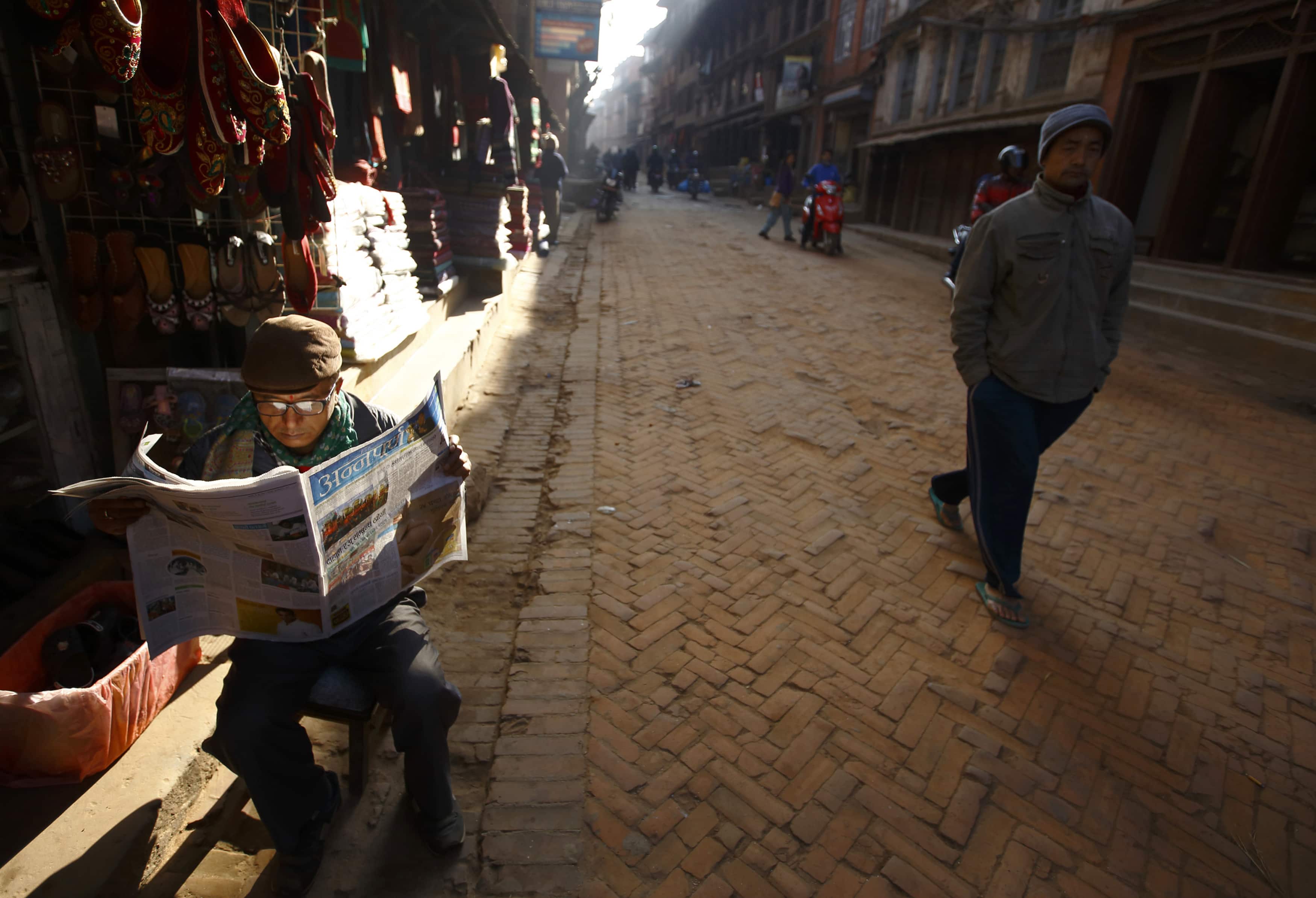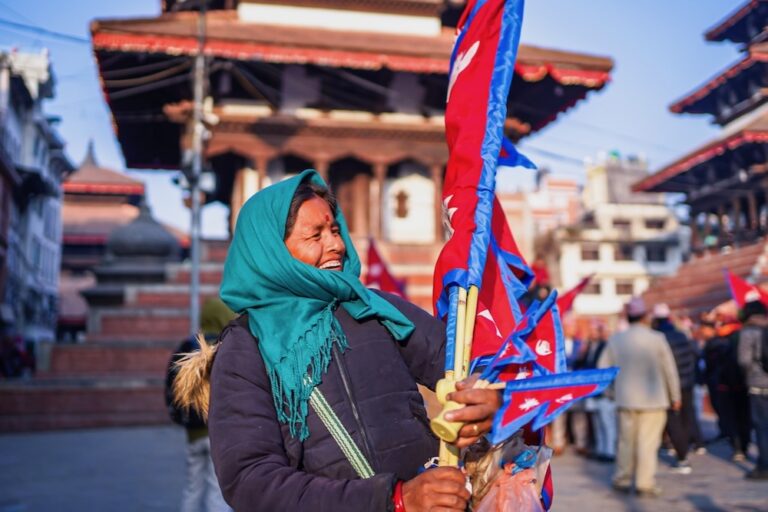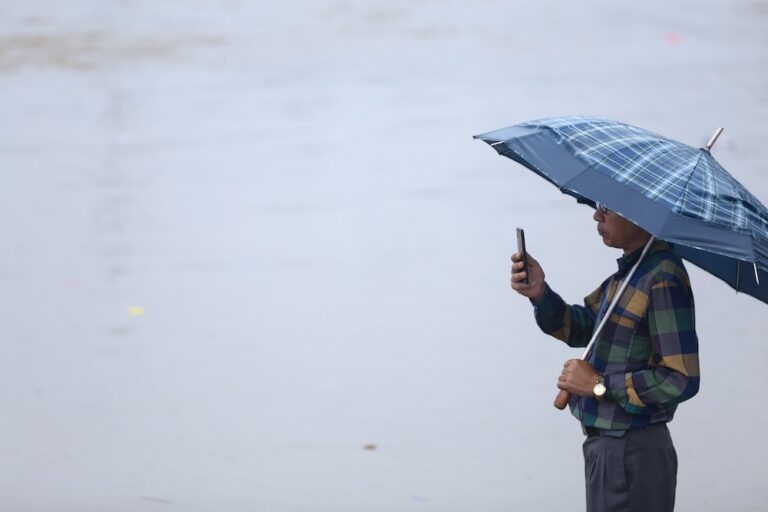Despite ongoing attacks against the Nepalese media in 2013, some improvements were noted as the number of violations decreased and in certain cases journalists' murderers were brought to justice.
As was the case in the previous year, in 2013 the Nepali media suffered a spate of intimidations from political parties and their youth wings, security bodies, government officials, unknown persons. Some of the important violations of press freedom from this past year include: attacks, threats of physical action, death threats and the mistreatment of journalists, the vandalising of press vehicles, obstruction, and the burning of newspapers. These incidents directly restricted press freedom and journalists’ right to report independently and free from fear, and deprived citizens of their access to information.
Compared to 2012, however, in 2013 we witnessed fewer incidents of press freedom violations. Freedom Forum recorded a total of 59 incidents of press freedom violations in 2013, compared with 147 in 2012 and 96 in 2011. Violations had surged up the previous year on the eve of the dissolution of the Constituent Assembly (27 May 2012) while violations of freedom of expression (especially freedom of speech) mounted in 2013 in the run-up to the election to the second Constituent Assembly of 19 November 2013.
Press Freedom Violations during 2013
Despite a gradual increase in the number of media outlets each year, media pluralism in terms of content, language and newsroom diversity has yet to gain pace. However, a very slow but gradual development in this front is unavoidable.
Regarding the democratic discourse the media can encourage, Nepali media is chiefly focused on political issues, which, many argue is a flaw. Social, economic, constitutional and developmental issues could be equally important.
No specific laws or policies were brought forward by the government in 2013 so that media freedom could be boosted and journalists’ rights protected. However, the ministry-level decision to study online media is an appreciated step. New media, in the form of online media and social media, have emerged as a new challenge in terms of their being regulated without hindering the free flow of information and freedom of expression.
During 2013, three journalists were arrested by the police in connections with their updates on news portals as per the Electronic Transaction Act. The police administration dubbed these cyber crimes and harassed journalists and suppressed media freedom. It is a matter of great concern and debate that the State/government needs to address without interfering with press freedom, and freedom of expression, which are important as oxygen for a democracy to function.
For the safety and security of journalists, few civil society organisations (CSOs) have been imparting training which is meager in relation to the number of journalists. The number of working journalists (active) remains somewhere between 5,000 to 6,000 across the country. In addition to the CSOs, nearly 300 plus two college and some 200 graduate colleges are providing academic courses on mass media and journalism. It is fair to say that many journalists in Nepal are low-tech which has been a drawback for them to enhance capacity and sharpen technical knowledge on par with modern journalism.
The situation of professional safety of a working journalist is quite discouraging. It has direct bearing on media freedom and professional development.
The physical safety of journalists is threatened also because of the misconduct of journalists themselves. As the number of media outlets is growing, the journalists’ number has grown along with incidences of using the media as a tool for other gains. Some reports on journalists’ detention are related to their misconduct.
Looking into the broader area of freedom of expression (FoE), this right was suppressed and obstructed, especially during the run-up to the election of the second Constituent Assembly (19 November 2013). This was disputed initially by the Communist Party of Nepal-Maoist which boycotted the election via anti-poll activities such as bombings, barricades, arson and obstructions. The government confirmed the party was behind such wrongdoings. These misconducts directly/indirectly suppressed and affected people’s (especially election candidates’) right to freedom of speech. The poll-boycotting party was responsible for nearly three dozen incidents that affected freedom of expression. In addition, the government (Home Ministry) pressured a film festival organizing body to screen a documentary on war while the Nepal Army pressured a film producer not to show the feature film, Badhshala (Slaughterhouse).
As regards impunity for crimes against press freedom, a positive development was that the mastermind of the murder of journalist Uma Singh was nabbed and sent to jail, even though the verdict was greatly delayed. Similarly, the murderers of journalist Yadav Poudel were sentenced to life in prison. Significantly, the murderers of journalist Dekendra Thapa from the far-west of Nepal were finally brought to justice despite heavy political pressure and protection. On 28 January 2013, a murder case against nine leaders and cadres of the then CPN-Maoist, was filed by the Dailekh District Court establishing proof of their involvement in Thapa’s murder. Justice was dispensed almost eight years after the crime was committed. These are major indications of improvement vis a vis impunity and media freedom in 2013.
In some cases, police personnel who threatened journalists later admitted their mistakes and abided by people’s right to information and journalists’ right to free reporting.
Compared to 2012, the number of press freedom violations declined sharply. The independent government was relatively friendly thereby resulting in the reduction of press freedom violations from 147 to 59. That suggests that a politically unstable government is more hostile to the media than stable and independent ones. This fact, along with the improvement in the state of impunity, are positive developments for the Nepali media.
In conclusion, political parties, despite being the essential elements of democracy, are still hostile to the media, another key element of a democratic society. Political parties need to embrace the media in order to work towards a healthy and competitive system of democratic discourse. Government officials and security bodies have yet to internalize the role of press freedom to foster democratic principles with enhanced and accountable governance.
Only politically neutral and professional media unions can help consolidate professionalism in the media and protect journalists’ rights. Faith-based treatment among journalists will enfeeble media unions’ capacity to collectively bargain.
In order to render the media safe and professional, journalists are the first persons responsible for this. The enjoyment of safe, free, professional and dignified media hinges on the strict adherence to ethics by media persons. This is a key need of the hour.
As for the way forward, a review of press freedom violations over the past 15 years is needed so that a long term plan on media safety and rights can be outlined. As the country is in an emergent democratic context, a new kind of media strengthening is essential.
Similarly, the coming Constituent Assembly which will create a new Constitution should guarantee the broader regime of freedom of expression and its corollaries – freedom of the press and the right to information – with the accompanying proper laws and policy so that all media can thrive and boost the practice of democracy.



